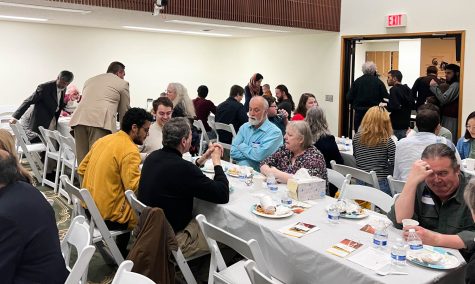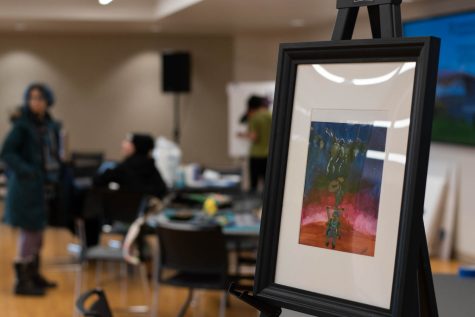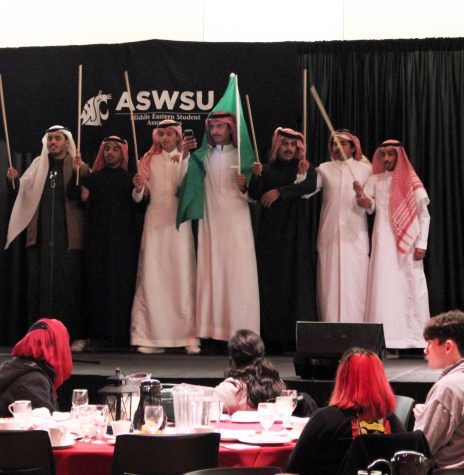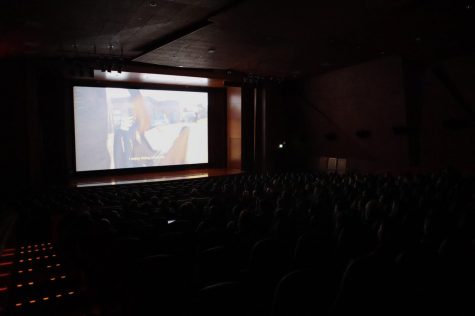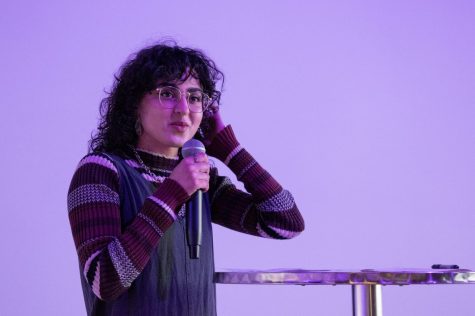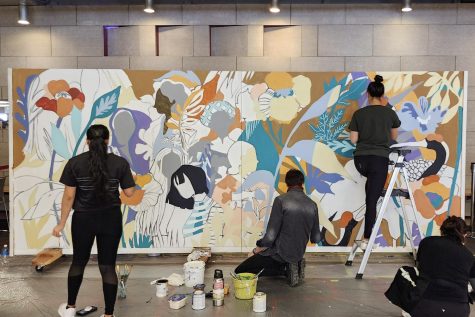“Kite Runner” show in Jones Theatre today only
March 11, 2015
Come and listen to a story of friendship, betrayal and redemption as a single act of cruelty changes the lives of two boys living in 1970s Afghanistan.
“The Kite Runner” will be brought to WSU by Young Audiences New York’s “Literature to Life” stage production, featuring a one-man show adapted from the novel by Khaled Hosseini. The book tells the story of two boys: Amir, the son of an upper-class Pashtun, and Hassan, the son of a Hazara servant.
“Kite Runner” is one of about 15 shows put on by Literature to Life, a theater company that tours the world using the performing arts for education on university, high school and middle school levels, said the program director of Literature to Life Gwen Brownson.
“It’s all verbatim, cut and pasted into a 60 minute performance,” Brownson said. “We travel with a teaching artist to make a discussion with the audience.”
Actor Sorab Wadia not only plays the protagonist Amir, but eight other characters such as Hassan, the fathers, and an evil bully. The timeline jumps around, starting when Amir is 38 and gets a call to fix the mess he made as a child. That’s when the audience is taken back in time to when he is 9 and 13, Wadia said.
There are no costume changes and the only set piece is a stool. To distinguish between characters, Wadia said he needed to focus more on how he talked and held himself on stage given that these characters often have conversations. He sometimes has to switch among four voices in a single scene.
“It has to do with gesture, with tone of voice, and the way you stand in your body,” Wadia said. “I change characters in literally half a second.”
Wadia said it was hard at first to adapt to these characters, but now it has become almost Pavlovian. Little changes, from pushing up his sleeves to twisting his legs a certain way, act like triggers to change the character.
The way Wadia learned this from director Wynn Handman was to envision the characters as paintings. Each one needs thick, strong colors or else they all mesh together like watery paint can become a nasty mess.
Brownson said these characters are relatable, particularly in the sense of Amira and Hassan, who are able to remain friends despite their difference in social class, but are then targeted by a Neo-Nazi bully.
“These are normal young kids and … you can imagine anyone in your life being in a similar circumstance,” Brownson said.
The theme of friendship runs deep through the story. Despite being from different social classes, the two boys have a strong bond and show how friendship can happen between many people, Wadia said. The actions of the bully result in friction between Amir and Hassan.
“Unfortunately, what country is without social divide?” Wadia said. “What country is without its bullies? What high school is without its bullies?”
Brownson said the entire novel revolves around themes of friendship and bullying, and while it is somewhat underplayed in Literature to Life’s play adaptation, it is still the main conflict of the plot.
The play is set up more like telling a story, breaking down the fourth wall that would normally separate the audience from the actor, Wadia said. While this can be a challenge, it’s a challenge Wadia said he enjoys.
“I’m walking on that stage to do a dance … (and) my audience is my dancing partner,” Wadia said.
Along with the production, there will be pre- and post-show discussions offered to try and connect community members and students with what’s on the stage. This upholds the program’s goal to be educational, providing more than just a play for show.
“It’s always fun to see those and hear those reactions and be proud of this company of actors who truly work hard to keep the performances alive,” Brownson said.
“The Kite Runner” will be performed at Jones Theatre in Daggy Hall on Wednesday, March 11 at 7:30 p.m. Tickets are $14 for adults, $12 for seniors, $7 for non-WSU students and youth, and free for WSU students.
Reporting by Catherine Kruse









